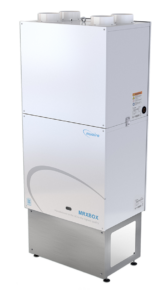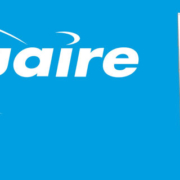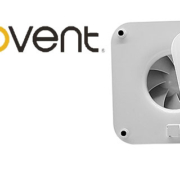
Nuaire’s Hybrid Cooling System is a cooling extension for its boxed-ventilation range designed to tackle residential overheating and provide a solution that meets Building Regulations.
The Nuaire Hybrid Cooling System is an ancillary cooling module that works with the existing Nuaire MRXBOX MVHR products to provide a hybrid MVHR and cooling system – delivering clean indoor air, while combatting overheating – a modern day issue in many high-rise new builds.
The new system is an energy efficient, space-saving solution that can be effortlessly integrated to newbuilds that face overheating problems; such as floor to ceiling glazed apartments where natural ventilation is impossible due to environmental and noise pollution outside, and dwellings which are without shade to protect them from the sun’s heat.
Andrew Nash, Divisional Manager and Overheating Expert at Nuaire, said:
“Overheating is a modern-day concern and not one which will be going away anytime soon – it can cause serious problems with sleep as well as heat stress, and present other major health risks meaning that often, overheated buildings are left abandoned in the hotter, summer months.
“Although current Building Regulations don’t talk enough about mechanical cooling, in most instances there is no other option. It’s important we tackle this issue and future-proof our residential systems to keep properties healthy and habitable going forward.
“With these rising temperatures, 4.6m homes in England already reported to have problems with overheating and more new builds being built set to face these issues, it is time for a fresh look at how we ventilate and create an optimal thermal temperature all year round within a home.
“With no option for natural ventilation, mechanical clean air input and extract is a necessity,” Nash continues. “Therefore, a new hybrid heating and cooling system needs to be considered to help with the optimisation of temperatures, especially within new builds. Our Hybrid Cooling System, introduced in 2022, gives peace of mind for consultants needing to recommend solutions for clean, comfortable, temperate air throughout a property that confidently meets Building Regulations.”
FOR MORE INFORMATION CLICK HERE TO VISIT THE NUAIRE WEBSITE






